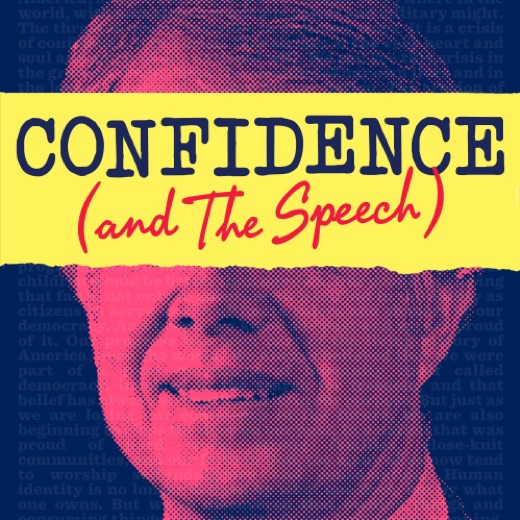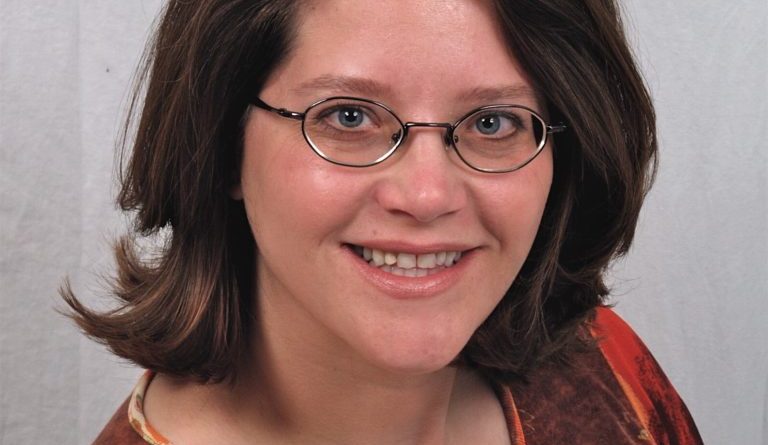INTERVIEW: New play focuses on Jimmy Carter’s so-called ‘malaise’ speech
Photo: Susan Lambert Hatem is the writer behind Confidence (and The Speech), now playing off-Broadway. Photo courtesy of the artist / Provided by Richard Hillman PR with permission.
Confidence (and The Speech) is a new off-Broadway play written by Susan Lambert Hatem about the so-called “malaise” speech issued by President Jimmy Carter. The 30-minute talk centered on the energy crisis, unemployment, inflation and the nation’s crisis in confidence, according to NPR’s look back at the historic talk.
The speech, given in July of 1979, was preceded by a 10-day window in which Carter retreated from public view, which only heightened the drama and mystery of the speech and its motivations. Hatem’s play looks at Cynthia Cooper, a college professor, who is asked by a young man what her memories are of working for the Carter administration and what type impact the “malaise” speech had on her life.
To offer some lessons, Cynthia (April Armstrong) assumes the role of Carter, while the young man (Zach Fifer) portrays her, the college professor. This cross-gender play, directed by Hannah Ryan, is meant to connect the dots through the decades, seeing how Carter’s words have proved prescient and how they might offer a lens on how to view today’s issues involving a nation in crisis and the role of women in politics.
Recently Hollywood Soapbox exchanged emails with Hatem about Confidence (and The Speech), which plays through Dec. 7 at Theatre One at Theatre Row in Midtown Manhattan. Questions and answers have been slightly edited for style.
How were you inspired to tell this story of President Jimmy Carter and this famous speech?
I was a kid in Georgia when Carter was first governor and then our president, so I was curious about his presidency. I think his and Rosalynn’s post-presidency life and relationship is so admirable. So I traveled to Plains, Georgia, to see him teach Sunday school. It was inspirational to hear and meet him. I read this short paragraph about how he disappeared for 10 days, and I thought it would make an interesting play. The ‘Speech’ felt like a metaphor for his presidency: initially beloved and later reviled, but possibly misunderstood. And the more I looked back at that time, the more I decided I wanted to take it on, as a ’70s West Wing political play, but with a gender-bending personal twist.
How does the casting of this play comment on its important themes?
In my play, President Carter is played by a woman (the incredible April Armstrong), and the young man who wants to know her story (Zach Fifer, in a revelatory performance) plays her as a young, black, female intern in the Carter administration. Political plays tend to be very male-dominated because we’re used to that. I felt Carter was the first feminist president, and so I wanted to use the exchange of roles as an opportunity to explore how gender impacts confidence and power, not just for the people in the play, but for the audience.
There are cliches to gender expectations that I want to challenge in a really exciting way, and that’s achieved in the play through the amazing performances of April and Zach — along with the talented ensemble that our director, Hannah Ryan, has built around them. It’s a gift as a writer to watch a cast find beautiful layers you didn’t even know you wrote.
How much research went into the speech and Carter’s time in office?
So much research! More than any other thing I’ve ever written. It was almost a year of research. Most of the characters are based on real people, so I felt I needed to do that work. I wanted to try to understand Jimmy Carter and Rosalynn. I read everything I could find: so many books, articles, interviews. The Carter Center and the University of Virginia Miller Center have incredible online resources which were significantly helpful. I have accrued a little lending library of books by and about Carter and his cabinet that we shared with the cast.
What do you feel the play says about women in politics?
I know what I’m trying to say: We are missing voices in the room that should be welcome, and when they’re not, we miss out on opportunities to move forward.
But I am particularly interested in what audiences think the play is saying. I look forward to those moments when people forget gender or race because they’re caught up in the story, and then they suddenly remember it and get a flash of insight. The visceral power of theatre to unexpectedly shift your perspective, that’s what I’m going for.
Do you feel that this play speaks to issues that have been occurring in the United States these past three years?
More than I could have possibly imagined. I started writing Confidence in 2015, the Obama presidency. It was almost complete when the 2016 election happened, and I had to set it aside. I didn’t know what the play meant any more after Nov. 8. I picked it up after the Women’s March. When I finished it in early 2017, I realized the play was even more relevant because looking back at this time really does end up being a mirror to the issues of today.
Our final weekend in Charlotte was nearly canceled because Hurricane Florence hit North Carolina. There is a character in the play who talks about CO2 consumption and extreme weather, and while she’s saying that, a hurricane is literally at the door. But the part that was never intended to feel so revolutionary was exploring an honest president trying to do the right thing.
It’s so important we have this kind of art at this time. What the Constitution Means to Me; The Half-Life of Marie Curie; Bella, Bella; Soft Power — all these plays are vibrating with issues of the day. It’s vital to have them, so we can imagine a different ending to what’s happening now. We have to find ways to move forward personally and politically.

Are you hopeful or worried for the future of the United States?
I believe democracy, justice and equality is at stake in a way that it has never been in my lifetime, which is definitely worrisome. But I see activism everywhere now. We have a groundbreaking number of candidates and elected officials who are women, people of color and LGBTQ. The first Native American woman was elected to congress last year.
Every day, I see people acting with incredible bravery and kindness, looking for ways to help.
I think they’re doing what President Carter was trying to speak to 40 years ago: facing the truth, but with a vision of what we truly want America to be. We are at a moment of opportunity. To let our voice be heard. To be brave. And joyous. To work for a better future for ourselves and the next generation. There are shocking acts of cruelty happening. Some people want to distract us, lock us into only feeling fear and despair. So I think it is our job to be hopeful.
By John Soltes / Publisher / John@HollywoodSoapbox.com
Confidence (and The Speech), written by Susan Lambert Hatem, plays through Dec. 7 at Theatre One at Theatre Row in New York City. Click here for more information and tickets.

